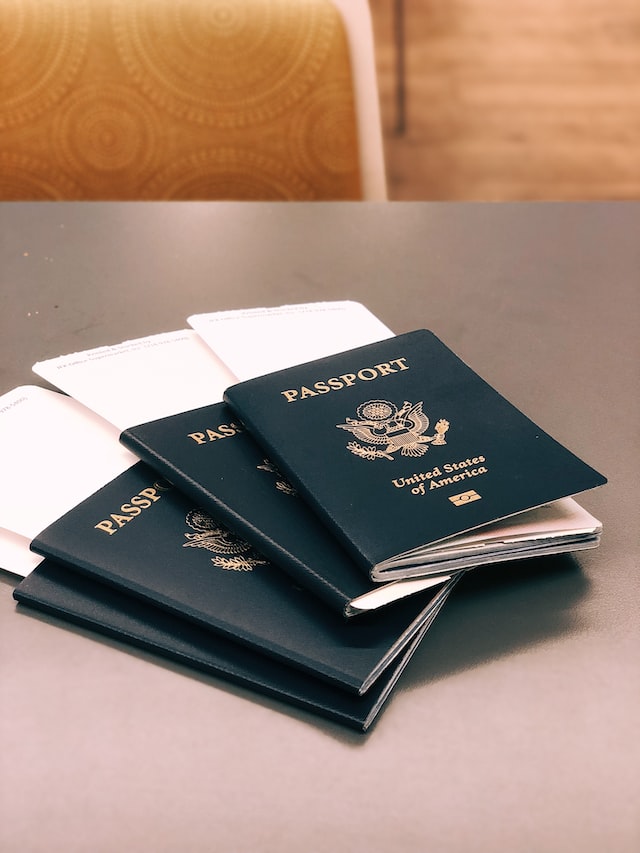Table of Contents
Dual citizenship, or having a second passport, is gaining in popularity nowadays
The concept of dual citizenship or being in possession of two national passports may be strange to many or even considered impossible. But Persons may have dual nationality by automatic operation of different laws rather than by choice. For example, a child born in a foreign country to U.S. national parents may be both a U.S. national and a national of the country of birth. Or, an individual having one nationality at birth may naturalize at a later date in another country and become a dual national.
It not every country that allows dual citizenship, as each country has its own nationality laws based on its own policy like you may need to renounce your birth citizenship to become a citizen of a new country. Also, becoming a dual citizen is a matter of choice and an option for the individual rather than obligatory. In this post, we shall be looking at what it means to have a dual citizenship, the benefits it offers and the countries in Europe that offers dual citizenship.
What is Dual Citizenship?
Simply put, it means that a person is a national of two countries at the same time. Every country decides whom it considers to be a citizen. If more than one country recognizes you as a citizen, you have dual citizenship.
What are the advantages of Dual Citizenship?
Dual citizens enjoy certain benefits, some of the benefits includes:
Easy Travel and Work
Unlike foreigners, dual citizens do not require a visa or permit to visit the countries where they have citizenship, and they can stay for as long as they like. They also have the right to seek work in both countries, while foreigners must pass through a lengthy process to get a work permit. There is no doubt an EU Passport as a second passport gives you the highest level of safety as gives you freedom of movement with the 27 countries of the European Union.
Enriched cultural views
As a dual citizen, you’ll reap the benefits of being immersed in the culture of the two countries. Some government officials are also fond of dual citizenship and see it as a way to promote the country’s image as a prime destination for tourists. Dual citizenship offers individuals the opportunity to learn about the history of both countries, learn two (or more) languages, and experience a different way of life.
Access to the rights and benefits of both countries
Dual citizenship allows individuals to access the rights and benefits of both countries, such as the right to vote in both countries and the ability to access government services in either country.
The ability to pass on citizenship to future generations
Dual citizenship allows individuals to pass on citizenship to their children, even if they are born in a different country. This can be especially beneficial for families who want to ensure that their children have the option to hold citizenship in both countries.
The ability to diversify investments
Dual citizenship can also allow individuals to diversify their investments and take advantage of opportunities in both countries.
Shortcomings of Dual Citizenship
It is important to note that while there are many advantages to having dual citizenship, it can also come with some challenges and responsibilities, such as the need to pay taxes in both countries and the potential for conflicts of interest when it comes to political issues.
Countries in Europe that offer Dual Citizenship
Here is a list of countries in Europe that offer dual citizenship:
- Albania
- Austria
- Bulgaria
- Croatia
- Cyprus
- Czech Republic
- Estonia
- Finland
- France
- Germany
- Hungary
- Ireland
- Italy
- Kosovo
- Latvia
- Lithuania
- Malta
- Moldova
- Montenegro
- Netherlands
- Poland
- Romania
- Serbia
- Slovakia
- Slovenia
- Spain
- Sweden
- Switzerland
It is important to note that the laws surrounding dual citizenship are constantly changing and it is always best to check with the specific country’s embassy or consulate for the most up-to-date information on their dual citizenship policies. Additionally, the requirements for obtaining dual citizenship vary from country to country and may include a naturalization process which may include submitting an application, providing proof of ancestry or marriage to a citizen of the country, and passing a language test.
I would like to hear from you: What are your thoughts on this subject. You can share your thoughts and experiences with me and others in the comments section below!
It is hard to continue writing post like this without contributions from readers like you. If you enjoyed reading this and find it useful, please would you consider to make a donation of $2 or more, which is the price of your coffee! Your donation will help encourage and support us to continue on our work to support migrants with free educative post and trainings who can not afford subscriptions to get much needed information. Anyone can support us even YOU. Kindly support us today, it takes a few seconds, just click HERE to donate. Thank you!
SIGN UP to the MigrantDigest newsletter & receive updates & tips on news, jobs, finance, entertainment and free trainings.
PLUS, you’ll get instant free E-Book on staying in Italy legally, delivered to your email! This E-Book is guaranteed to help you to be informed of the existing rules to live a better life and to co-exist better with Italians. It only takes a few seconds!
Like this post? Don’t forget to share it!

